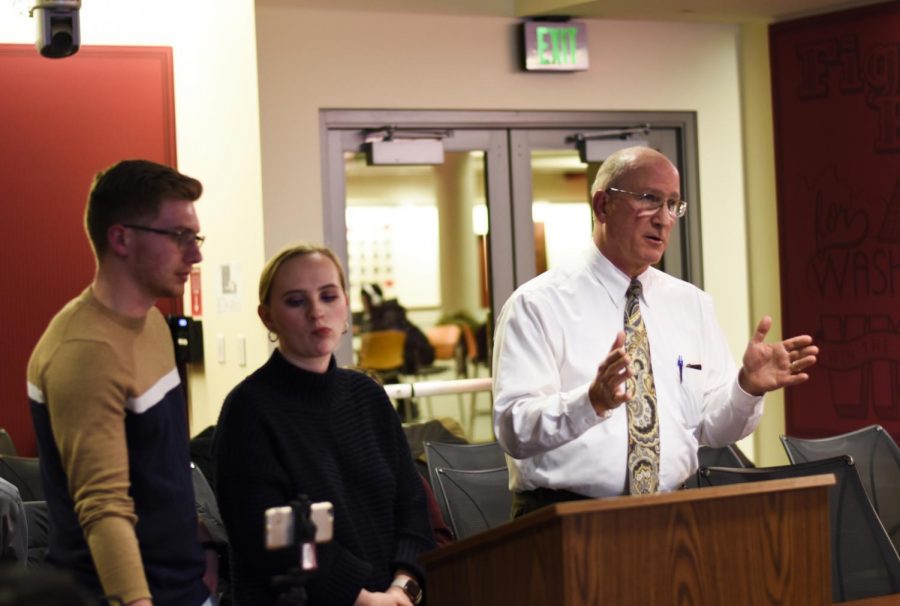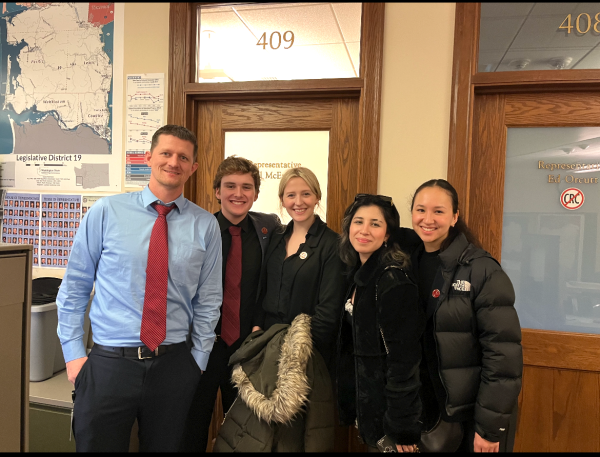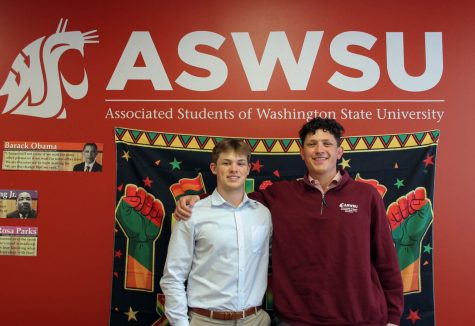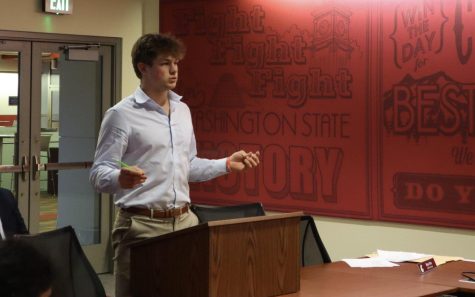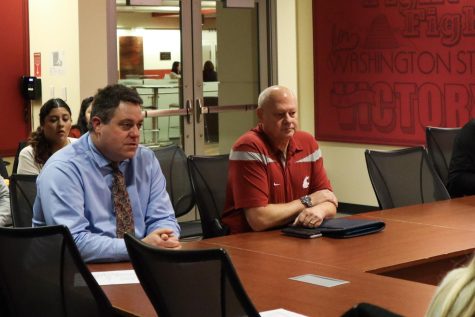ASWSU approves potential transit fee increase
WSU transportation costs could rise $3.43 per year for each student
BONNIE JAMES | THE DAILY EVERGREEN
Matthew Winchell, left and Savannah Rogers, center, represent the Transportation Advisory Group (TAG) as Director of WSU Transportation Services John Shaheen delivers a student transit fee proposal to ASWSU Wednesday night at the CUB.
February 21, 2019
WSU students might see a five percent increase in student transit fees. The ASWSU Senate approved this fee increase at Wednesday’s meeting.
Matthew Winchell, Transit Advisory Group (TAG) member said TAG provides an oversight for the best practices to be used by the student transit program.
TAG member and ASWSU President Savannah Rogers said that in 2017 a referendum passed to increase the student transit fees.
There was also a stipulation that stated TAG could request a five percent increase in transit fees every year from the ASWSU and GPSA senates, she said.
Rogers said the increase has to be approved by both GPSA and ASWSU for it to go into effect.
“It’s really important that this fee is in place because it allows for transportation [services] to continue,” Rogers said.
If approved, it would be $72.17 per student for the whole year, she said. The fee is currently $68.74.
Students would pay $3.43 more per year for this fee, Rogers said.
Winchell said the transportation services has about 1.4 million riders each year.
John Shaheen, director of transportation services, said the number of riders is measured through the driver’s count, since there is no system in place to track them.
Winchell said recent improvements include more frequent services for non-express routes and expansion to areas like The Grove apartments in Pullman.
“Students may not use it all the time but it’s available when they do need it,” he said.
It’s a low cost transportation alternative for students who might not have a car on campus, Winchell said.
He said WSU Transportation Services began providing Sunday transportation, which was not provided originally.
Shaheen said the budget for Pullman Transit to operate is about $4.5 million. The university contributes about $2.5 million through service and activity fees, student transit fees and Transportation Services contributions.
“It’s a large program and a lot of people depend on it, so it’s important to understand what some of the funding vulnerabilities that we could fix,” Shaheen said.
The Operating Contingency Fund is a reserve that would protect against funding vulnerabilities, he said.
“Without an increase in the next three years it would put is in the red [financially] in fiscal year 2021,” Shaheen said.
This article has been changed to reflect that a source’s name is actually Matthew Winchell, not Matthew Mitchell.

